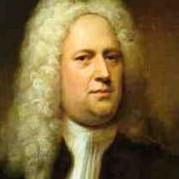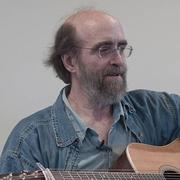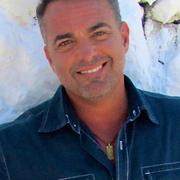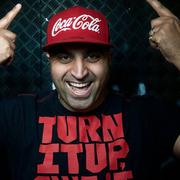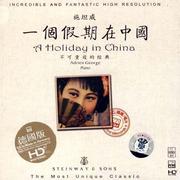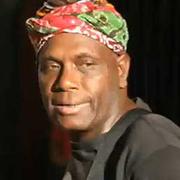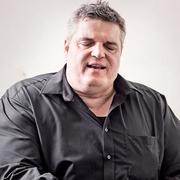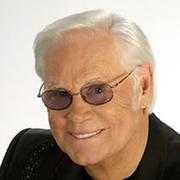George Frideric Handel
| 基本信息 | |||
|---|---|---|---|
| 姓名 | George Frideric Handel | 别名 | 暂无 |
| 国籍 | 英国 | 出生地 | 德国哈勒 |
| 语言 | 纯音乐 | 性别 | 男 |
| 生日 | 1685 | 星座 | |
| 身高 | 体重 | ||
亨德尔与巴赫并称为巴洛克音乐最伟大的作曲家。1685年生于德国哈勒,师从管风琴家查豪学习作曲,后在教堂内任管风琴师及艺术指导。因他热爱世俗音乐,于1703年移居汉堡(当时唯一有民族歌剧的德国城市)担任该地歌剧院管弦乐团院长后,开始潜心于歌剧的创作,不久即受到乐界的瞩目。亨德尔于二十一岁时离开故乡德国到意大利并活跃于该地,随后四年已有相当的成就,直到1710年返国担任汉诺威选帝候的宫廷乐长为止。同年他首次访英演出自作歌剧,在伦敦受到疯狂般的好评,因此1712年第二次访英时,即长居伦敦,不久就成为英国的音乐权威人士,并在1726年加入英国藉。亨德尔一生共创作了《阿尔西那》、《奥兰多》等四十六部歌剧,除五部外,其余均在伦敦创作,其中部分更在欧洲其它地方上演过,亦以此经常与意大利作曲家波隆契尼互争长短!在英期间,亨德尔继承菩尔赛的地位,在1713年为圣保禄大教堂写下一些合唱作品,更在泰晤士河上以著名的《水上音乐(Water Music)》取悦了乔治一世与整个朝廷。1719年他组成了皇家音乐学校(Royal Academy of Music)以发表其歌剧.。从1732年起开始以英语写作神剧。三十年代未开始,从事没有舞台表演的清唱剧创作。一生共写了三十二部清唱剧,其中绝大部分也是在英国写的,对英国音乐发展产生极其深远的影响。在1742年都柏林首演了他最受欢迎的神剧《弥赛亚(Messiah)》,其中的《哈里路亚》(希伯莱语赞美上帝的意思)流传最为广泛。亦以此为自已打开另一个全新的创作空间。接着他写了一些管风琴协奏曲、颂歌和管弦乐作品及1749年为庆祝乔治二世在法国的胜利而作的《皇家烟火(Royal for Fireworks)》。除了歌剧和神剧以外,亨德尔也谱写了为数甚丰的协奏曲和奏鸣曲,这些纯巴洛克样色的作品,主要是为剧场和公开场合演奏的目的而写,其中蕴含着相当的戏剧色彩,这一点与巴赫的作品主要是作为教会演奏之用,正呈鲜明对比。作为歌剧、古键琴奏鸣曲、管风琴赋格、协奏曲、管弦乐曲和神剧等多方面的能手,亨德尔是当代除巴赫以外最有声誉的作曲家。他将这些从十七世纪承袭而来的曲式加以变化和扩展,将不同的欧洲风格融会贯通,写下了无数令人难以忘怀的乐章。晚年亨德尔不幸双目失明,1759年病逝于伦敦,按其遗愿葬于西敏An internationally known German composer and keyboard virtuoso, George Handel has written more than 40 Italian operas, chamber music, church music, oratorios and instrumental music. His versatility in composing has led to a career full of accomplishments, including writing Italian operas and English oratorios. George Handel was born in Halle to a distinguished barber who wanted his son to become a lawyer. By the age of 12, George Handel had already mastered several instruments. He was the assistant organist at the Halle Cathedral, becoming the main organist at the age of 17. His teacher, Friedrich Willhelm Zachau, greatly encouraged George Handel's musical genius. Despite encouragement from his teacher, George Handel enrolled at the University of Halle to study law. After a year he dropped out to study music and orchestration in Hamburg. Once in Hamburg, George Handel became a violinist in a theater orchestra. During this time he taught himself how to write opera. He composed his first opera, Almira, in 1704. After achieving success and writing three more operas he moved on to Italy in an attempt to learn more about opera composition. From Italy he traveled to Rome and Naples all the while composing. In 1709 he finished his sixth opera, Agrippina, in Venice. In 1710 he then moved to London. The first opera he composed while in London was Rinaldo, in which he achieved great success. The Duke of Chandos, after seeing the opera, gave George Handel permission to compose an oratorio titled "Esther and the 11 Chandos anthems for choir and string orchestra." It was this accomplishment that won him the approval of the king and permission to open the Royal Academy of Music. Some of George Handel's best operas were performed there including Radamisto, Giulio Cesare, Tamerlano and Rodelinda. The Academy collapsed in 1728. George Handel attempted to open another company but that too collapsed in the 1730s. George Handel suffered a stroke in 1737 and was forced to retire while recovering. After recovering from his stroke, George Handel resumed composing. In 1741, he composed his last opera Deidamia. His most memorable work, Messiah, was also composed at this time. It was first performed in Dublin and earned immediate success. When the king of England saw the performance and stood at the end, everyone else also stood. This has become a tradition at a Messiah performance, that everyone stands at the end for the Hallelujah chorus. English dramatic oratorios, concertos and instrumental music were George Handel's main compositions in the late 40s. He composed about two oratorios a year including Samson in 1743 and Solomon in 1749. In 1751, he eyesight began to fail and his composing decreased. One of the greatest composers of the Baroque period, George Handel composed during the time of J.S. Bach, Henry Purcell, George Philip Telemann and Antonio Vivaldi. Despite his numerous operas, concertos, oratorios and dramas, George Handel's greatest accomplishment as a composer was the invention of the dramatic oratorio genre. The last performance George Handel attended was his own Messiah. He died in London in 1759. Even his funeral was a grand accomplishment. More than 3,000 mourners were present for the funeral of the famous composer. He was buried at Westminster Abbey and received full state honors.
 加载评论内容,请稍等......
加载评论内容,请稍等......
